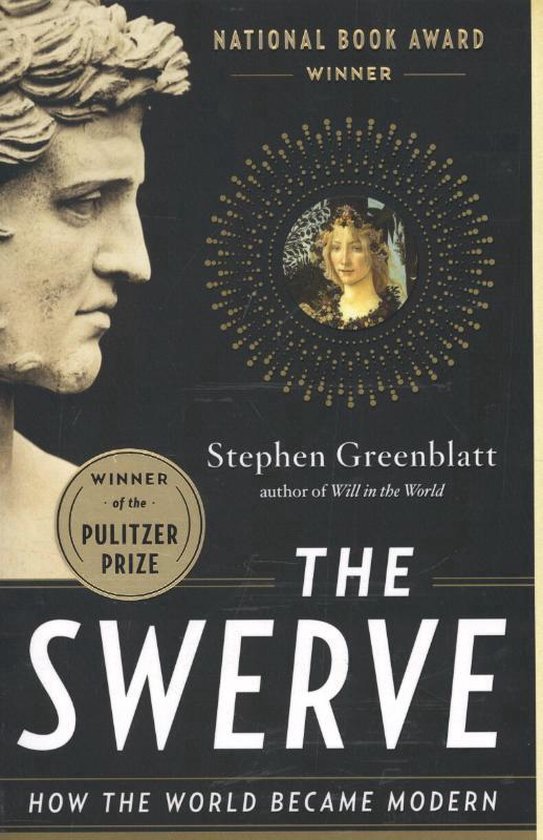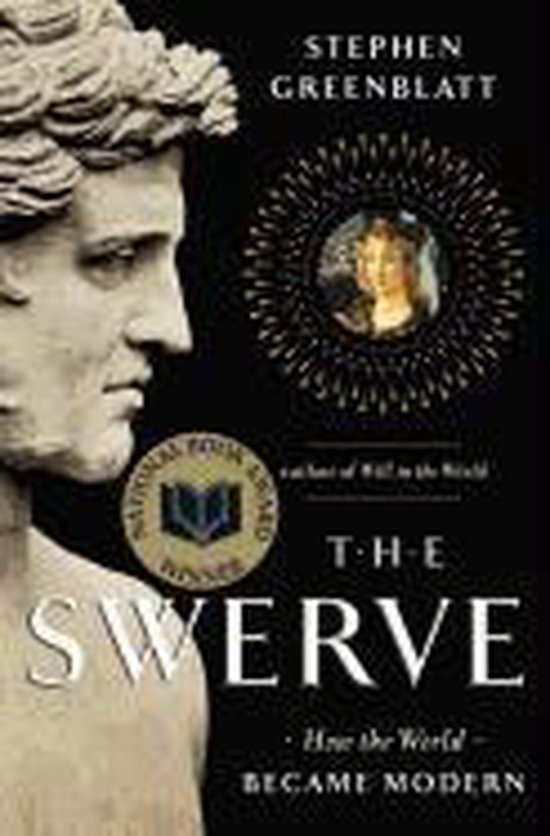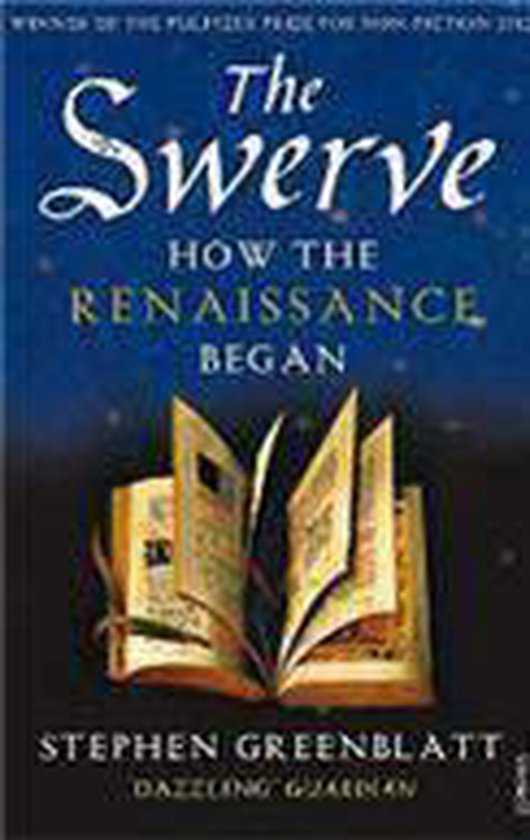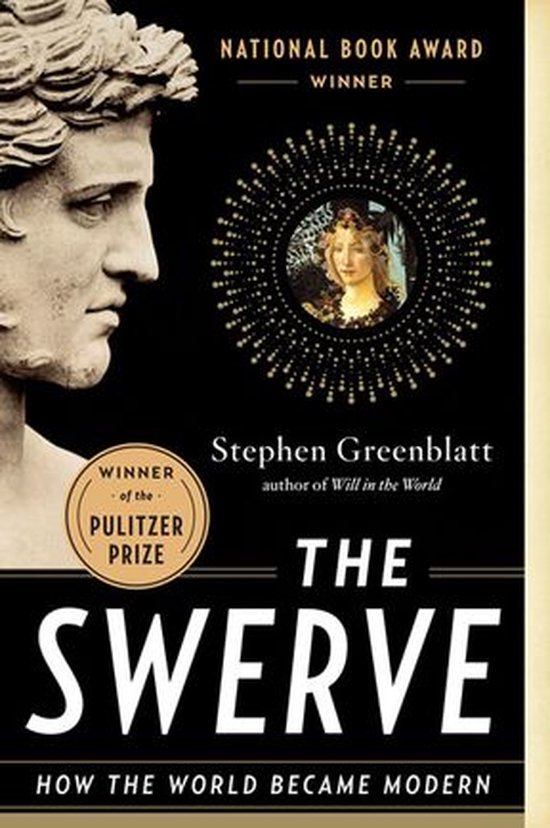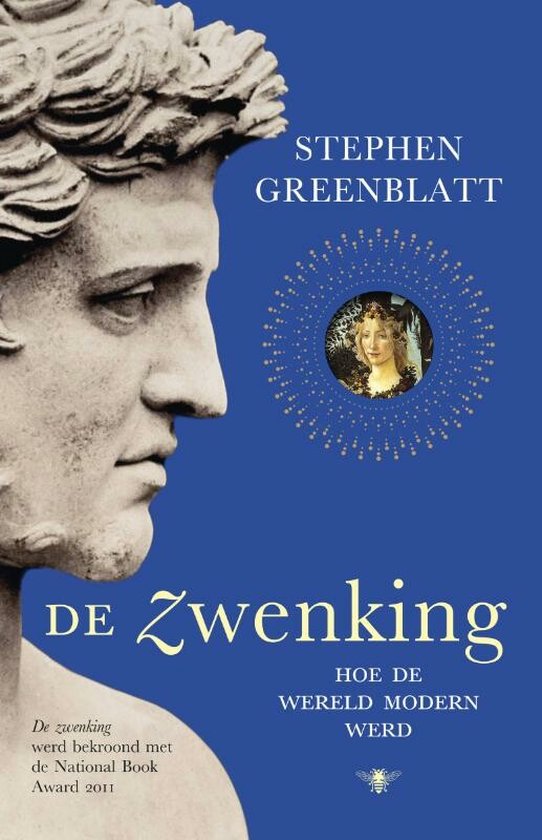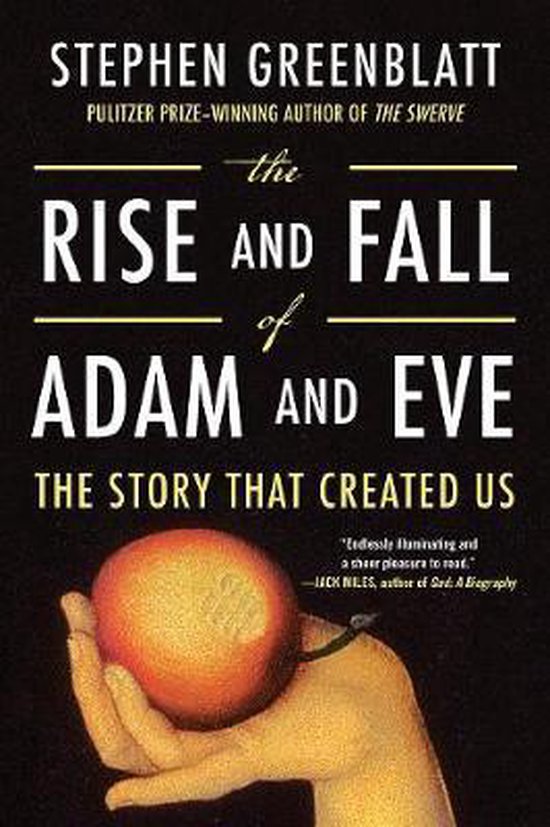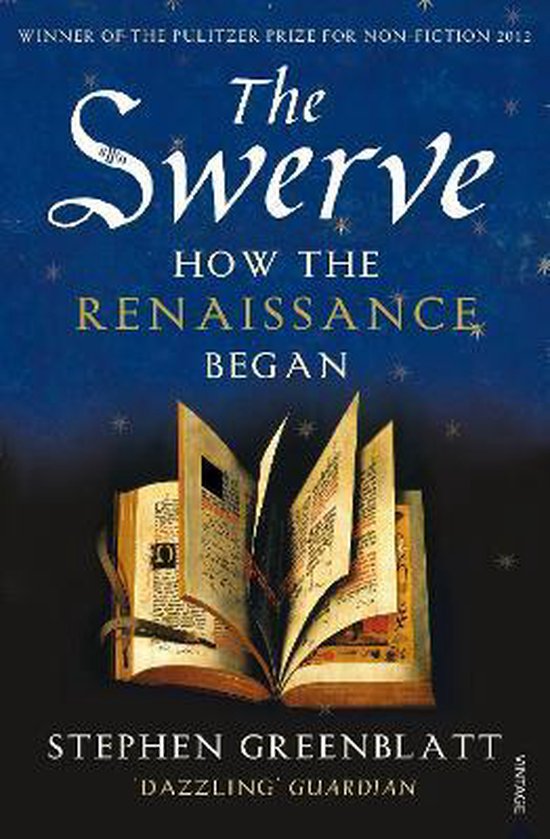
Swerve How The Renaissance Began
WINNER OF THE PULITZER PRIZE FOR NON-FICTION 2012
Almost six hundred years ago, a short, genial man took a very old manuscript off a library shelf.
A riveting, exemplary tale of the great cultural "swerve" known as the Renaissance.
WINNER OF THE PULITZER PRIZE FOR NON-FICTION 2012
Almost six hundred years ago, a short, genial man took a very old manuscript off a library shelf. With excitement, he saw what he had discovered and ordered it copied. The book was a miraculously surviving copy of an ancient Roman philosophical epic, On the Nature of Things by Lucretius and it changed the course of history.
He found a beautiful poem of the most dangerous ideas – that the universe functioned without the aid of gods, that religious fear was damaging to human life, and that matter was made up of very small particles in eternal motion. These ideas fuelled the Renaissance, inspiring Botticelli, shaping the thoughts of Montaigne, Darwin, and Einstein.
An innovative work of history by one of the world’s most celebrated scholars and a thrilling story of discovery, The Swerve details how one manuscript, plucked from a thousand years of neglect, made possible the world as we know it.
‘Superbly readable... An exciting story, and Greenblatt tells it with his customary clarity and verve’ Robert Douglas-Fairhurst, Daily Telegraph
| Auteur | | Stephen Greenblatt |
| Taal | | Engels |
| Type | | Paperback |
| Categorie | | Mens & Maatschappij |
